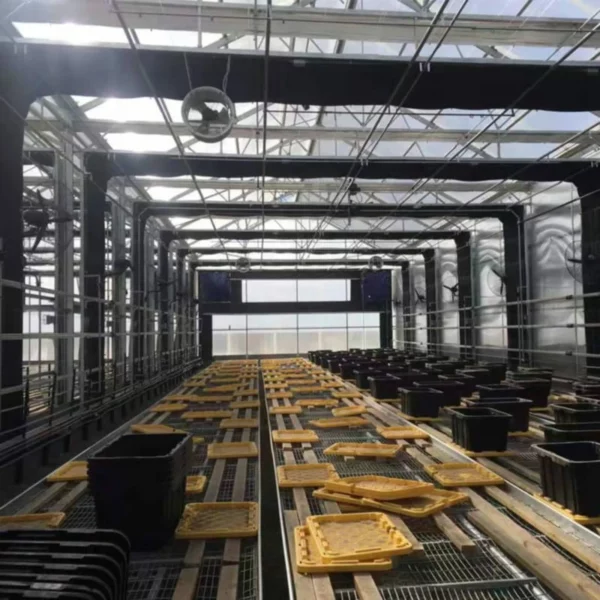In recent years, the agricultural landscape has witnessed a surge in technological advancements aimed at optimizing crop production. Among these innovations, polycarbonate commercial greenhouses have emerged as a game-changer, revolutionizing the way crops are cultivated. These structures offer a multitude of benefits that cater to the diverse needs of modern agriculture while ensuring efficiency, durability, and sustainability.
Understanding Polycarbonate Commercial Greenhouses
Polycarbonate commercial greenhouses are structures designed to create controlled environments for crop cultivation. They utilize polycarbonate panels as the primary building material for the greenhouse covering. Polycarbonate, a thermoplastic polymer, provides exceptional durability, transparency, and insulation, making it an ideal choice for greenhouse construction.
Features and Advantages
- Durability and Strength: Polycarbonate panels are significantly stronger than traditional greenhouse coverings like glass or polyethylene. They offer high impact resistance, capable of withstanding harsh weather conditions, hailstorms, and accidental impacts, ensuring long-term structural integrity.
- Superior Insulation: These greenhouses provide excellent thermal insulation, effectively trapping heat inside during colder months and minimizing heat transfer during warmer periods. This insulation helps maintain stable temperatures, creating an optimal environment for plant growth throughout the year.
- Light Transmission: Polycarbonate panels allow ample sunlight to penetrate while diffusing and distributing it evenly within the greenhouse. This diffusion minimizes shadowing and ensures uniform light distribution to plants, promoting healthier and more consistent growth.
- UV Protection: Most polycarbonate panels are treated to block harmful ultraviolet (UV) radiation, shielding plants from excessive sun exposure, which can otherwise damage or hinder growth.
- Versatility and Customization: These structures come in various shapes, sizes, and designs, offering flexibility for growers to customize their greenhouse layouts based on specific crop requirements and available space.
Applications in Agriculture
Polycarbonate commercial greenhouses find applications across diverse agricultural sectors:
- Fruit and Vegetable Cultivation: Ideal for growing a wide range of crops such as tomatoes, cucumbers, peppers, and berries due to the controlled environment and optimal light transmission.
- Floriculture: Suitable for cultivating flowers and ornamental plants that require precise light exposure and consistent temperatures for healthy growth.
- Nurseries and Seedlings: Effective for starting seeds, nurturing young plants, and propagating cuttings due to the controlled and protected environment they offer.
Polycarbonate commercial greenhouses represent a significant advancement in agricultural technology, providing a controlled and efficient environment for crop cultivation. Their durability, excellent insulation, light transmission properties, and customization options make them a preferred choice for growers aiming to maximize yields, ensure crop quality, and operate sustainably. As the demand for efficient and sustainable farming practices continues to rise, polycarbonate commercial greenhouses stand at the forefront, driving innovation and transformation in modern agriculture.
